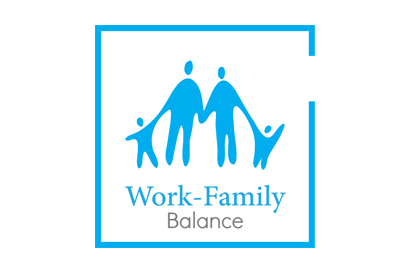Changing traditional mindset through collective agreements in the western Balkans – The role of social partners in enabling work-family reconciliation and gender equality
- pdf Parental Leave Directive / 743 KB
- pdf Recast Directive / 131 KB
- pdf FA on inclusive labour markets / 515 KB
- pdf FA on telework / 300 KB
- pdf Directive on part time work / 98 KB
- pdf Framework on actions on gender equality / 97 KB
- pdf Measures to address challenges of work-life balance in the EU Member States / 1 MB
- pdf Pregnant workers Directive / 679 KB
- pdf Strategic engagement for Gender Equality 2016-2019 / 535 KB
- pdf Work Programme EU social partners / 369 KB
- pdf BusinessEurope_Position paper_ Work-Life Balance for Working Parents and Carers / 486 KB
The promotion of reconciliation of work-family life and legislation in this field has become a necessity for a range of reasons. Measures traditionally originate from gender equality concerns. They also support the economy as they facilitate the participation of individuals in paid work, can have a positive effect on fertility rates, and can also boost pension systems. For all of these reasons reconciliation has become an increasingly important topic.
The project overall objective is to raise awareness and strengthen knowledge of social partners and other target groups (employers and employees in the private sector, school girls, interested public) on the importance of measures to reconcile work-family life as well as on the complexity of gender equality in order to slowly change traditional mindset and break the stereotypes in the WB, namely through SD/collective agreements and thus contribute to economic success.
Activities within the project will strengthen knowledge and experiences of all target groups and ensure added value not only short term, but also in the long run by contributing the understanding of flexible work forms, implementation of adaptable and competitive industry, with investments in the development of HR and to the necessary integration of economic, educational, development and research, and employment sphere.
Overall objectives of the project:
- Adaptation of SD to changes in employment and work related challenges, such as reconciliation of work-family life, gender equality, active inclusion and decent work;
- Strengthen the capacity of social partners in the participating countries to contribute to national and European SD;
Specific objectives:
- Raise awareness and strengthen knowledge among social partners and their members, policy makers and other interested public, on the importance of measures to easily reconcile work-family life and to promote gender equality;
- Raise awareness and strengthen knowledge on the role of social partners and on the importance of collective bargaining in enhancing the work-life balance and in promoting gender equality;
- Present the European social partners’ work programmes (as well as EU law and European standards) in the field of reconciliation policies and gender equality in the participating countries and examine the feasibility of its adaptation and implementation;
- Shape a new model of measures on reconciling work and family life, including new challenges (active paternity, gender equality, stress at work), to be used in present/future sectoral/company collective agreements;
- Changing traditional mindset and breaking the stereotypes on the one hand through encouraging young girls to think more daringly about the choice of non-traditional professions (with the focus on »stereotypically male« ones), and on the other hand through raising the awareness of companies about the importance of unexploited potential of women and encouraging them to create a better working environment, taking into account the aspect of reconciliation of private and professional life.
Project partnership:
Employers’ organisations:
- HUP – Croatian Employers’ Association
- BCM - Business Confederation of Macedonia
- UPCG - Montenegrin Employers’ Federation
- PS – Serbian Association of Employers
- BiznesAlbania - Albanian Employers’ Association
Trade unions:
- ZSSS – The Association of Free Trade Unions of Slovenia
- SSM – Federation of Trade Unions of Macedonia
- UFTUM - Union of Free Trade Unions of Montenegro
- CATUS – Confederation of Autonomous Trade Unions of Serbia
- KSSH – Confederation of Trade Unions of Albania
Associates:
European cross-industry social partner:
- BUSINESSEUROPE
Trade union:
- NHS – Independent Trade Unions of Croatia
With support by:
- EARS – union of Employers’ Association of Republika Srpska

With financial support by the European Union.

